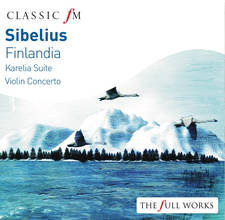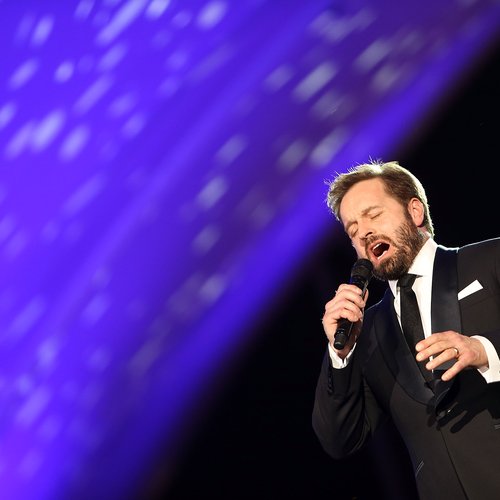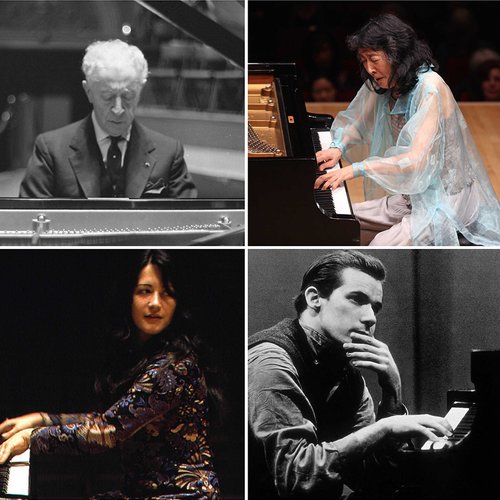The Two Faces Of Alfie Boe
Former car mechanic Alfie Boe has been fêted for his work in opera and has starred in a West End musical. He has been acclaimed at the Royal Opera House, but recently caused a media scrum by claiming he was bored rigid by watching the productions there.
He has Italian middle names – Alfred Giovanni Roncalli Boe is his full moniker – but hasn’t a drop of Italian blood in him. At first glance, the popular Lancastrian tenor would seem to be a mass of contradictions and complications.
Are his operatic and musical-theatre sides at loggerheads? Is he giving up one for the other? Does he worry about alienating his opera-loving fans? What’s it all about, Alfie?
To find the answer, Classic FM meets up with Boe in a backstage room at the Queen’s Theatre on Shaftesbury Avenue one summer afternoon during his run as the heroic Jean Valjean in Les Misérables. He looks relaxed in a T-shirt and jeans, and answers my questions thoughtfully and enthusiastically.
There shouldn’t be a distinction between opera and musicals, he says, only between good music and bad music. We discuss singers’ acting styles. Modern opera productions can now be as physical as music theatre, he says, and some opera directors like to push singers to their physical limits. He talks about accessibility; when you take opera out of an opera house (Boe won a Tony Award in Baz Luhrmann’s production of La Bohème on Broadway), some people seem to find it less threatening.
He talks about these things with a warm friendliness, but every so often a look of inner concentration flits over his face, and he wiggles his jaw slightly. Is he stifling a yawn?
“No, I’m assessing how my voice is behaving for this evening’s show,” he says. “This feels a little tight here, so I need to relax here and here.”
He indicates different parts of his face. And that gives me my first clue on my hunt for the “two faces of Alfie Boe”. He may describe himself later as “just a normal guy singing songs”, but he takes his talent very seriously.
“Some people think I went straight from being a mechanic to the stage of Covent Garden, but I trained for years at the Royal College of Music and the National Opera Studio. I’m still developing my technique all the time.”
And like all serious singers he simply has to sing. It’s not a desire, it’s a necessity – I see it shining out of him later during his scalp-tingling performance as Jean Valjean – and it doesn’t matter for him whether it’s opera or musicals.
“I perform Les Misérables like I would La Bohème, with the same passion. I don’t change the way I sing, or my approach to singing,” he says earnestly.
But he uses a microphone in musicals: isn’t that a difference?
“Yes, but it’s a luxury which allows me to discover different sides to my voice. It gives me the opportunity to portray my voice in a delicate way, almost like a whisper, especially in a song like Bring Him Home. I can use different kinds of colour.”
I want to clarify this, and pursue the idea of style. Surely there’s a stylistic difference between opera and musicals/pop? We all recognise it when it goes wrong (viz Kiri te Kanawa being overly operatic in West Side Story).
“No,” says Boe. “All you have to be honest to is the legitimacy of your own voice. The only thing I modify in pop music is pronunciation, because you have to add an American twang.”
But even within opera, there are different kinds of style. Boe was terrific in Gounod’s Roméo et Juliette at Covent Garden recently: doesn’t he sing French opera differently from the way he sings La Bohème? Doesn’t the former require Gallic restraint, and the latter Italian emotionalism?
“I don’t have a clue what you’re going on about, and have to disagree completely.”
I start at his bluntness, but there’s not a shred of aggression. It’s his manner.
“When people talk about a ‘Mozart tenor’ or a ‘Puccini tenor’, for me it’s complete crap. Hearing someone sing a Puccini opera in one way and then sing a Mozart opera another is just not true, and I don’t like to hear someone be untrue to their voice.”
Boe’s forthrightness gives another clue to the link between his “two lives”. His amiable Lancastrian manner has been called into question as a kind of defensive professional Northerness, but in person there’s nothing so calculating about him.
He’s friendly, but completely direct. In performance, this is a great asset, and it makes him a powerful emotional communicator. In other areas of life however, it has landed him in hot water. A few months ago he appeared on Desert Island Discs and said that although he loves performing in opera he gets bored watching it in the theatre.
“We should re-name him Alfie Boellocks!” thundered Mike Volpe, general manager of Opera Holland Park.
Come on, Alfie! Couldn’t you have been more tactful?
He pops with laughter. “Alfie Boellocks! I love it!
“I can see why what I said would rub people up the wrong way, and I’m sorry if I’ve offended anyone, but that’s my opinion. When I’m at the opera, I think, damn, I wouldn’t have sung it like that, I’d have sung it like this. I’d much rather be doing it myself.”
Hmm. That sounds to me as if he’s quite engaged in the performance, not bored by it. He thinks for a moment.
“OK, you’re quite right. But when I analyse singers, I get tired, and I think that’s what I find boring. And I still have to say there are a lot of operas out there that are boring. That’s my statement. So there you go.”
He gives a cheeky grin. “I didn’t think people would worry that much about it, but they’ve obviously lost a lot of sleep and twittered and typed and texted like crazy. But at least it’s got people talking.”
One might disagree with him, but it’s hard not to warm to someone so open and obviously good-natured.
His latest recording, Alfie, is a splendid disc from Decca which builds on the success of his previous album. Bring Him Home (which itself came about because of his enormous global triumph as Jean Valjean in the film of the anniversary performances of Les Misérables), and includes a familiar mix of hits from musicals and popular ballads. He’s also performing a national tour with similar material.
Does he worry that he’s not recording core classical opera?
“No, I see it as an opportunity to open doors to new genres of music. I hoped I could really show that there is no division, that a good popular song is as good as an aria. So I feel Decca has been a godsend to me. It’s a great label to be under.”
I finish with a clincher. He says there aren’t two lives. So what would he do if he had to choose between, say, a run of Les Misérables on Broadway and singing Cavaradossi in a production of Tosca at the Met?
“That’s a good question, man.” For the first time in our interview he looks stumped, and falls silent while he puzzles over it. Then his face lights up.
“I’d have to work to fit them both in together!”
MUSICAL TENOR VS OPERA TENOR
So what are the main differences between the two performing styles?
Musical tenor:
■ MIKED-UP: Microphones and electronic amplification help to project a singer’s voice.
■ TRIPLE THREAT: It’s helpful if a musical theatre singer can also dance in a variety of styles – tap, jazz and ballroom – as well as act convincingly.
■ SUPER STAMINA: Musicals usually run for eight shows a week
■ BARITENOR: Musical theatre often demands a lower "tessitura" (range) than opera.
■ LA LINGUA ÈPIU SEMPLICE: Musicals are always sung in the language of the audience
Opera tenor:
■ UNAMPLIFIED: An opera tenor uses his natural technique to project his voice.
■ VIVA VOCE: For certain vocally taxing roles (such as Tristan or Siegfried), a non-acting and physically unconvincing performer might still be cast if his voice is suitable.
■ DAYS OFF: Major opera houses always put at least one day – often two – between performances to allow singers to rest. A "long run" is around 12 performances
■ LANGUAGE BARRIER: In major international houses, operas are almost always sung in the original language, be it Czech, Russian, German or Italian.
HOW THE MUSICAL WAS BORN
1850 - 1870
A Frothy Start
Jacques Offenbach puts catchy, not-too-difficult tunes in frothy plots with risqué dialogue. Operetta - or ‘little opera’ - is born
1866
Broadway’s First
The Black Crook in New York mixes singing, acting and dancing; it is the first Broadway musical
1870s - 80s
Opera Lite
The rise of Johann Strauss II and operetta takes off in Vienna
1870s - 90s
Made in England
Gilbert and Sullivan develop less risqué operettas such as The Mikado
1900s - 20s
The Jazz Age
Jazz, tango and ragtime styles fused into revues and light comedies such as No, No, Nanette.
1927
Big Issues
Show Boat by Jerome Kern tackes a serious theme and revolutionises musicals 1940s Golden Age Start of the era that gave us Oklahoma!, Carousel, The King and I and My Fair Lady
1957
Love Story
In West Side Story choreography reaches a new level of sophistication
1960s - 70s
City Chic
Stephen Sondheim whose work has an urban tone
1970s - NOW
Blockbusters
The rise of long-running musicals like Les Mis and Mamma Mia!
















